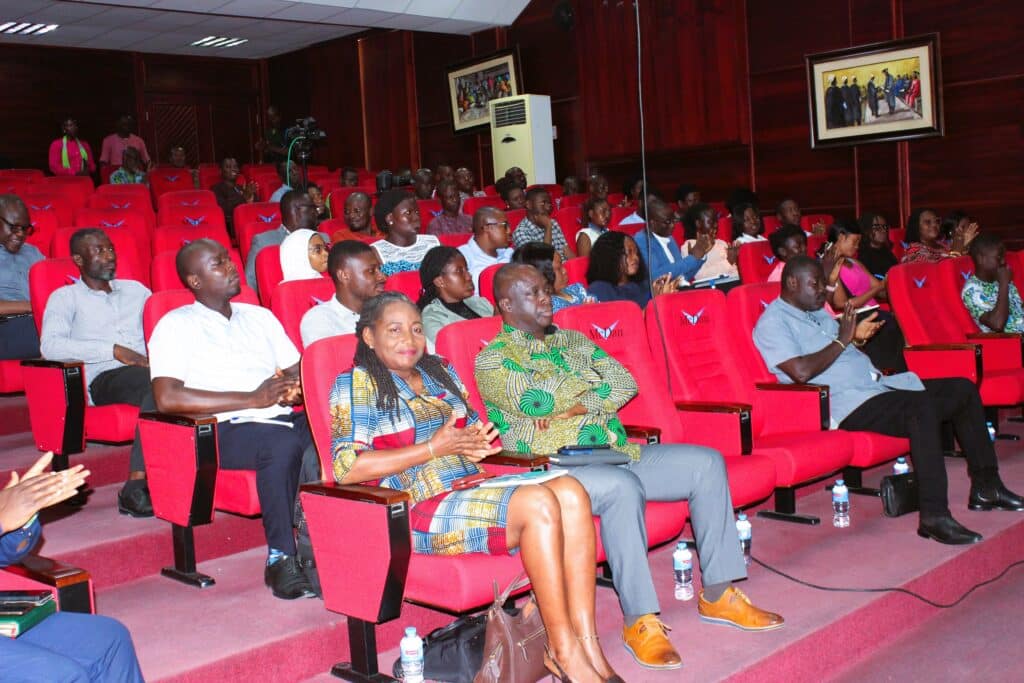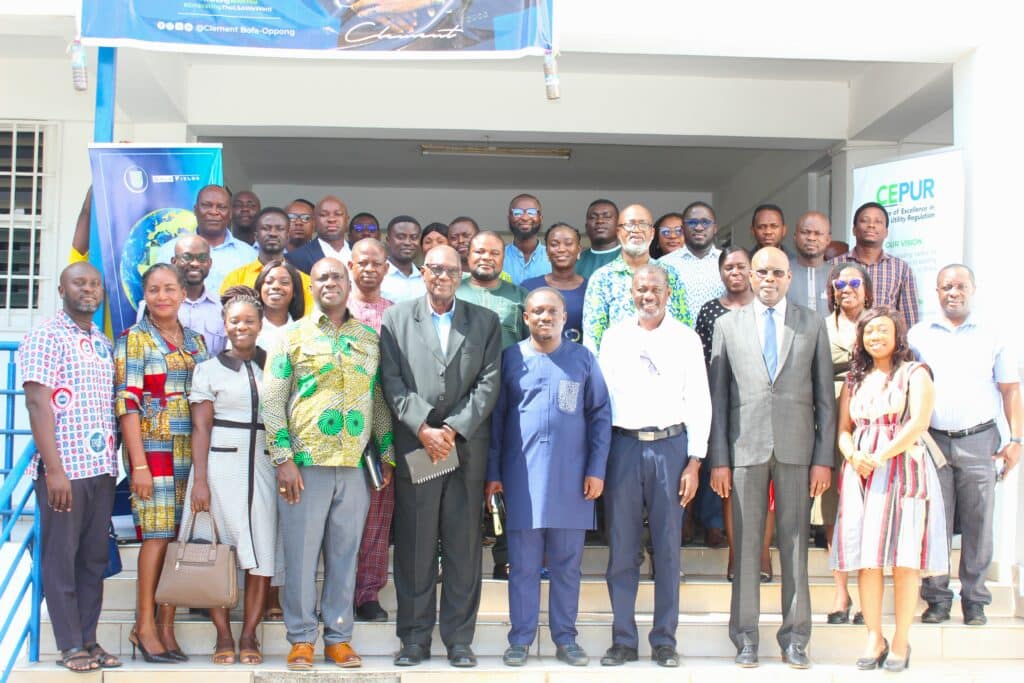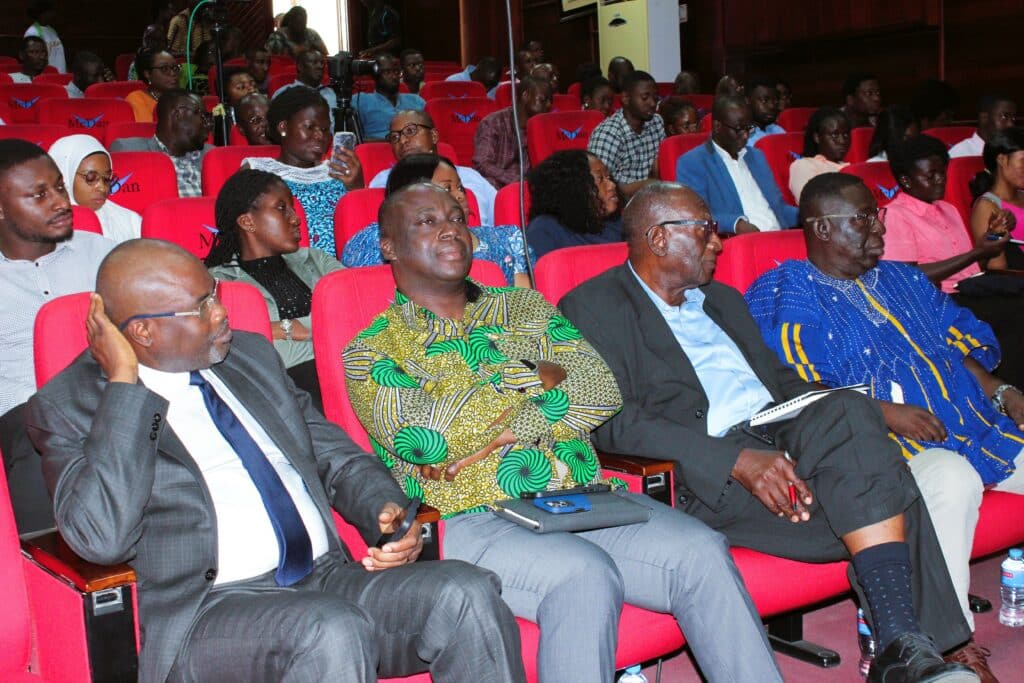


By Manacia Sefakor Asamoah
The Centre of Excellence in Public Utility Regulation (CEPUR) at the Ghana Institute of Management and Public Administration (GIMPA) organised a policy dialogue to commemorate World Water Day which falls on the 22nd of March, each year. This year’s observation was under the theme “Leveraging Water for Peace.” The event provided a platform to explore the role of water management in promoting peace, stability, and sustainable development.
The dialogue was graced by distinguished guests, including the Guest Speaker, Mr. Bright Owusu Kwarteng, Finance Director of the sector Ministry, a representative of the Deputy Minister, the Board Chairman of the Water Resource Commission, Mr. Minta Aboagye, who doubled as the Chairman of the occasion shared valuable insights on the importance of water as a catalyst for peacebuilding and conflict resolution and Engineer Abdallah Braimah, the MD. Water Company Limited. Their presence underscored the significance of collaborative efforts in addressing water-related challenges in Ghana.
The Rector of GIMPA, Prof. Samuel Kwaku Bonsu also delivered remarks highlighting the importance of water, “Water is one of those resources that until you lose it, you don’t see the value, we have a significant responsibility as men and women who have been placed on this earth to use the resources available to us effectively, and efficiently for the benefit of ourselves and the benefit of others that we interact with”, he reiterated.
Stakeholders such as the Ministry of Sanitation and Water Resources, Ghana Water Company Limited, and Gold Fields Limited made presentations showcasing their initiatives and best practices in leveraging water resources for peacebuilding, community development, and environmental sustainability.
The dialogue facilitated engaging discussions on various topics, including integrated water resource management, transboundary water cooperation, community-based approaches to water governance, and the role of public-private partnerships in improving water access and quality.
Participants explored innovative strategies to address water-related conflicts, mitigate risks associated with water scarcity, and promote equitable distribution of water resources. The dialogue emphasised the need for inclusive and participatory decision-making processes that involve local communities, indigenous groups, and marginalised populations.
The policy dialogue reaffirmed the importance of leveraging water as a tool for peace and sustainable development. It highlighted the critical role of regulatory institutions, government agencies, private sector actors, and civil society organisations in advancing water security, resilience, and peacebuilding efforts.
The Chairman, Mr. Minta Aboagye, in his remarks, shared some important nuggets with the audience:
- “Ghana shares the water resource of the Volta River with five other riparian countries namely, Benin, Burkina Faso, Cote d’Ivoire, Mali, and Togo.
- The Volta River as it is known in Ghana, has three big tributaries: Black Volta, White Volta, and its tributaries of Red Volta Kulpawn and others; and Oti all taking their sources from outside of the country.”
Moving forward, stakeholders are committed to fostering collaboration, knowledge sharing, and collective action to harness the potential of water as a source of unity, prosperity, and peace in Ghana and beyond.
DIRECTORATE OF CORPORATE AFFAIRS & INSTITUTIONAL ADVANCEMENT

